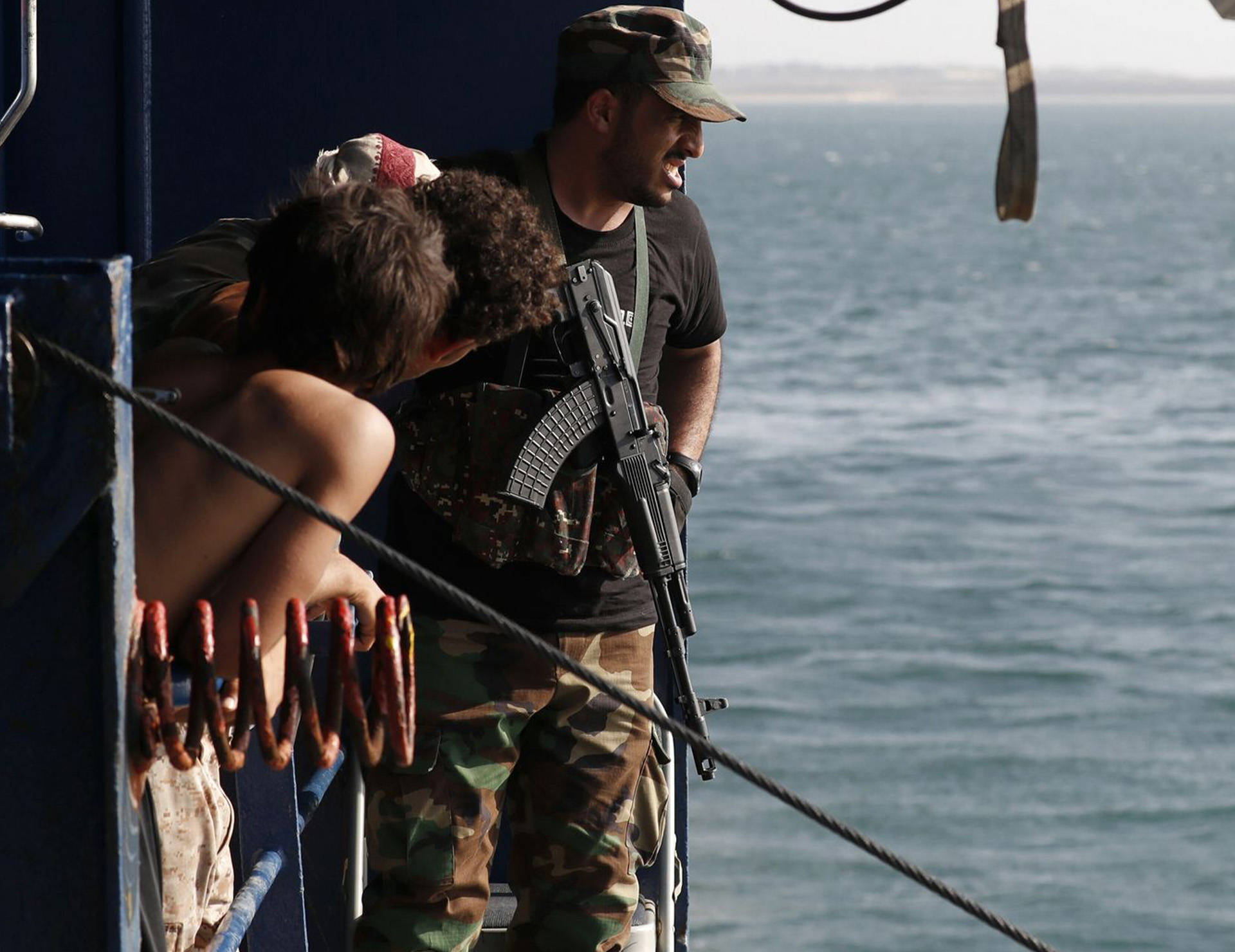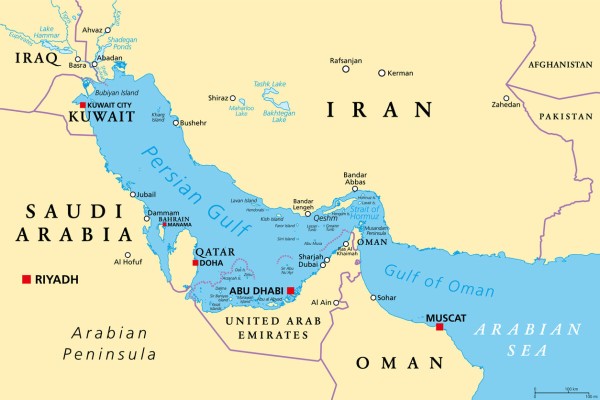The Red Sea crisis threatens to disrupt global trade

Since October 7, the Houthis of Yemen, a formidable part of the so-called “Axis of Resistance”, has been waging attacks across the region, and on October 31, they declared they were joining Israel-Hamas war. In a statement on Oct. 31, Houthi military spokesman Yahya Sarei said, “Our armed forces have launched a large batch of ballistic and cruise missiles and a large number of drones on various Israeli enemy targets in the occupied [Palestinian] territories.” Sarei described the attacks as supportive of Palestinians in Gaza who are facing “American-Israeli aggression” amid the “weakness of the official Arab regime[s] and the collusion of some with the Israeli enemy.”
After the declaration of the war, Iran-backed group threatened to target all Israeli ships in the Red Sea. On November 19 Houthi fighters hijacked a cargo ship (the Galaxy Leader) with links to an Israeli company. With this attack, the Houthis confirmed their position as they have declared war on Israel and Israel-owned ships. “All ships belonging to the Israeli enemy or that deal with it targets will become legitimate,” the Houthis announced after their attack. On November 26, a tanker (the Liberian-flagged Central Park) linked to Israel was seized by armed attackers, then it was rescued by USS Mason, but no one assumed responsibility as US Central command said in a statement that two ballistic missiles were fired from Houthi-controlled parts of Yemen in the general direction of the USS Mason and the Central Park, but landed about 10 nautical miles away from the vessels, resulting in no damage or injuries. Yemen’s government in Aden blamed the country’s Iran-backed Houthi rebels for the attack. However, the rebels, who control the capital, Sanaa, did not acknowledge either the seizure or the missile attack.
With the temporary ceasefire between Israel and Hamas from November 24 to 1 December, the attacks by Yemen’s Houthis were stopped. However, as the ceasefire ended, the group’s recent attacks started again. On December 3, U.S. Central Command said the USS Carney responded to four attacks on three commercial ships: The Carney assisted the Unity Explorer - a Bahamas-flagged bulk cargo ship owned and operated by the United Kingdom - after an anti-ship ballistic missile landed in its vicinity. In a separate attack hours later, a missile struck the Unity Explorer itself. Likewise, the Carney assisted the M/V Number 9 - a Panamanian-flagged bulk carrier owned and operated by Bermuda and the United Kingdom - after a missile struck it. The Carney also assisted the M/V Sophie II, a Panamanian-flagged bulk carrier crewed by sailors from eight countries, after another missile struck it. This begs a question- Why US kept restraining itself from attacking Yemen despite ever growing number of attacks by the group?
Saudi Arabia is a key point here to consider answering this question. Riyadh this year has normalized ties with Tehran and is seeking to exit the war in Yemen which Riyadh has been involved in for nearly 9 years. Riyadh wants to expand and diversify its economy, and despite the war in Gaza, advancing the peace process with the Houthis can help Saudi Arabia to even better improve their economy by focusing on it more rather than waging war in Yemen and end the dependence on the oil. The Houthis want to put more pressure on Washington to end the Israeli offensive in Gaza, and Saudi Arabia urges US to restrain itself not wanting to damage their peace process with the Houthis and they do not want the Israel-Hamas war to expand to regional conflict which can drag also Saudi Arabia into the another war, as no one can afford a regional war.
On 6 December 2023, the Houthi militants launched several ballistic missiles at Israeli military posts in Eliat. On the same day, USS Mason shot down a drone launched from Yemen in the Red Sea. There were no clear indications on what its target was. Also, the French warship Languedoc, a multi-mission frigate, shot down two Houthi drones in the Red Sea on December 9. The French foreign ministry said the drones were attempting to attack the ship and characterized the interception of the drones as “deterrence.” The same day, Yemen’s Houthi movement said it will target all ships heading to Israel regardless of their nationality, and warned all international shipping companies against dealing with Israeli ports. “If Gaza does not receive the food and medicines it needs, all ships in the Red Sea bound for Israeli ports, regardless of their nationality, will become a target for our armed forces,” the group’s spokesperson said in a statement. The threat has an immediate effect, the statement added. And Houthi officials repeatedly added their actions are a show of support for the Palestinians.
On December 11, the Norwegian-flagged chemical tanker has been hit by an anti-ship missile in international waters in the Bab-el-Mandab Strait off the coast of Yemen. On 13 December, the group attempted to board a commercial tanker coming from India heading towards Netherlands or Sweden and then fired missiles, but failed at both. On 14 December, the Hong-Kong flagged Maersk-Gibraltar ship was attacked, though unsuccessfully, with missiles, and on 15 December, two Liberian-flagged container ships were attacked by the group. On December 16th an American naval vessel, USS Carney, shot down 14 drones over the Red Sea while a British ship, HMS Diamond, destroyed another.
The attacks on ships in the Red Sea are not near the stopping point; on the contrary, the number of attacks has started to increase and resulted in a full-scale crisis. As a result, on December 15 and 16, four of the world’s five largest container-shipping companies- GMA, CGM, Hapag-Lloyd, Maersk and MSC have paused or suspended their services in the Red Sea. These 4 companies represent 53% of global container trade. To add more pressure on the shipping industry, in Bab-el-Mandab (a strategic point between the Mediterranean Sea and the Indian Ocean via the Red Sea and the Suez Canal) which the Houthi attacks occur in the Red Sea, 12% of global trade by volume normally flows. That means for the world economy the crisis would raise the costs of trade as shipping is rerouted around Africa, taking more time (going around Cape of Good Hope will take additional 10-12 days) and shipping insurance premiums soar. This will indeed firstly damage the economy of Egypt, for whom revenues from the Suez Canal are a major source of income- and global trade traffic, if the blockage persists. The goods will be delayed, and their coast can soar too, given that 12% of all non-oil commodities’ (like coffee, soybeans and palm oil) trade flows pass through the Suez Canal. However, Israel probably will not be affected that much, because only about 5% of its trade passes through Eilat, Israel’s Red Sea port.
Speaking about oil, while some experts expected the prices to skyrocket as companies such as BP and oil tanker company Frontline suspended navigation in the Red Sea, the market has remained relatively stable. In the long term, if we consider the worst-case scenario, the crude prices would rise just 3 or 4% per barrel, still not much.
Even though the Houthis says that they attack only Israel-linked vessels, they have hit some with little or no ties to Israel. For example, the Norwegian owner of a vessel (Swan Atlantic) which was attacked by the group on 18 December, said that the Houthis relied on incorrect industry data over false links to Israel. And the Houthis are also precise in their targets trying not to hit Saudi, Iraqi, Qatari and Russian tankers in the Red Sea. It will potentially keep oil market in check. And as the group is in direct talks with Saudi Arabia to agree on a long-term peace deal, they are of course unlikely to hit a Saudi tanker. The agreement will help the Houthis to tighten their grip on the northern Yemen.
On 18 December, the MSC Clara was attacked as the group claimed responsibility saying that it has links to Israel. On December 19, to tackle with the recent attacks in the Red Sea, the United States has announced the launch of a 10-nation multinational force to protect trade in the Red Sea. The group responded by stating readiness to confront any US-led coalition and willingness not to halt their attacks on the Red Sea shipping. On December 20, the leader of Yemeni Houthis Abdul-Malik-Al-Houthi even warned that they would strike U.S warships if the militia was targeted by Washington.
On the next day, the Pentagon announced that more than 20 countries had agreed to participate in the coalition, known as the Operation Prosperity Guardian, with at least 9 of the countries taking part having declined to be publicly named. However, France said their ships would stay under French command, Italy pledged to send the naval frigate Virginio Fasan to the Red Sea, but outside of the framework of Operation Prosperity, while Spanish Defence Ministry said it would only participate in NATO or EU-coordinated operations, and not unilaterally in the Red Sea Operation. These three nations explicitly stated their commitment to operating under the command of international bodies such as NATO or the European Union, choosing no to align with the United States. It is a major setback for the coalition which even pushed some experts to predict the collapse of the US-led coalition. And the United States-led multinational naval force appears significantly weakened before even sailing together. The reason behind this is that the European countries do not want to get directly involved in the Gaza war. Additionally, without Arab nations in the coalition, the Houthis are ready to accelerate their attacks. Only one Arab nation, Bahrain, is involved which is no surprise as it is the home to the US Navy’s 5th Fleet. On Wednesday, the group cautioned their Arab neighbors not to join the coalition. Regardless of the number of countries participating in the coalition, Operation Prosperity Guardian has not lived up to expectations so far.
In general, Gulf states are reluctant to join the coalition out of concern it would appear they are siding with Israel at a time when their people are outraged by the war in Gaza. So, even though the coalition needs to include larger Arab countries to deter the Houthis from attacking shipping line, most of them will not join- for example, Egypt which collects up to $10 billion annually, because of the proximity to the conflict zone and the sensitivity of the issue to Arab nations, is highly unlikely to join the coalition. Saudi Arabia is very keen to extricate itself from the war in Yemen which it has heavily involved since 2015, and to make peace with both Tehran and the Houthis. Joining the US-led coalition could jeopardize their efforts as they are an inch closer securing the peace agreement. And Saudi Arabia still urges Washington to restrain itself from attacking Houthis, as a direct American attack can threaten the negotiation process and interfere normalization between Iran and Saudi Arabia. This action gives enough courage to the Houthis for continuing their attacks.
Generally, while UAE is in favor of a firm response aimed at undermining the Houthis’ military capabilities and reducing the threat to commercial shipping since they are not engaged in bilateral negations unlike Saudis, one thing these three Red Sea powers have in common is that they don’t want to be seen as working side-by-side with Israel and protecting it. Turning to the shipping companies, so far 12 of them suspended transit through the Red Sea, and while some companies welcomed the coalition, the underlying risk is still there. Consequently, even though the coalition will be in waters trying to protect ships from any attacks, still while the coalition may fight against Houthi attacks, ships will be vulnerable in open sea and the strike can come from anywhere.
Without Arab nations and unity among coalition countries, the Houthis’ assaults will only continue. The situation demands more active cooperation. And interestingly, the fact should not be forgotten as there are other 9 countries which they don’t go public with their participation.
As to the Houthis, before 7 October, they faced domestic pressure over issues such as unpopular government changes and a failure to pay salaries. However, their fighting on behalf of Palestinians boosted their popularity and despite the fatigue among Yemenis decade-long civil war, the campaign proved to be popular among them, as on Wednesday after the group declared mobilization, thousands of Yemeni youths applied to training camps to join the war. Israel’s assault on Gaza finally gave the Houthis an unpopular enemy against whom they could channel public opinion. And with the attacks intensified, it became clear that the group is hoping to gain through them more leverage in talks with Saudi Arabia. The Houthis are undoubtedly the Axis of Resistance group with the most to gain and the least to lose by attacking Israel and shipping.
On December 22, US accused Iran saying that it is deeply involved with the Houthi attacks on ships by providing drones and missiles as well as intelligence. However, Iranian deputy foreign minister on Saturday dismissed the accusations, saying that the Houthis were acting on their own. So far, both Iran and the rebel group have been cautious in their actions not to escalate the situation and expand it to a regional war which no country can afford. We can expect the situation to continue the way it is.







